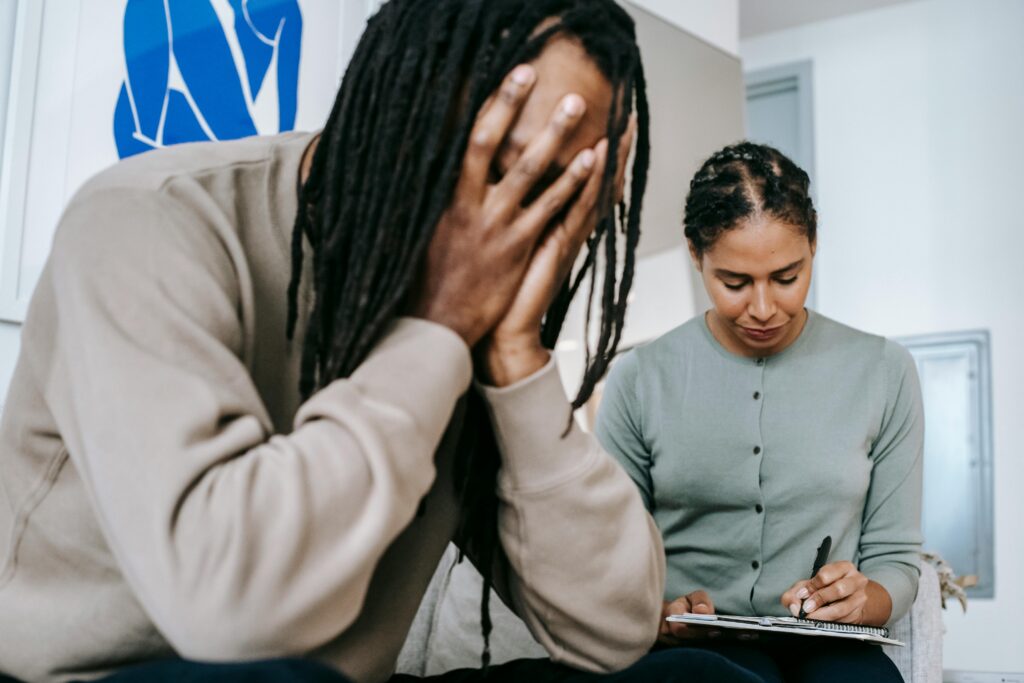Are you concerned about the mental health of your loved one? Identifying if your loved one is experiencing depression can be challenging. You may have observed some symptoms of depression in your loved one such as difficulty sleeping or less interest in spending time together. And, while these symptoms of depression often go unnoticed by some, it made you wonder about the mental wellbeing of your loved one. You’re not alone.
How to Identify Depression
According to the World Health Organization, over 264 million people worldwide experience depression, and often loved ones are the first to notice the symptoms. While there are more reported cases of depression affecting women, both women and men experience depression and need the support of their loved ones. If you are uncertain if your loved one is experiencing depression, a licensed professional counselor is professionally trained to diagnose and treat depression. Identification of these symptoms will assist you in determining if your loved one may be experiencing depression.
- Is your loved one constantly or sporadically sad or tearful?
- Does your loved one express hopelessness for themselves or their future?
- Does your loved one become quickly irritated or easily upset?
- Is your loved one consistently eating more or less than usual?
- Does your loved one consistently sleep more than usual or not at all?
- Is your loved one have trouble concentrating?
- Does your loved one have low energy and move slowly from one task to the next?
What Treatment is available for Depression?
If these symptoms are present, and last over a period of two weeks, your loved one may be experiencing depression. Depression may be treated without medication through interpersonal psychotherapy and cognitive behavioral therapy .
Interpersonal psychotherapy (IPT) is used to focus on the improvement of troublesome interpersonal relationships or circumstances that are directly related to your loved ones current state of depression. IPT is a solution-focused approach that aims to empower your loved one to continue the techniques learned outside of their sessions.
Cognitive behavioral therapy (CBT) is often used to focus on changing the way your loved one may process their thoughts or behave. With CBT, your loved one will learn to navigate through their thoughts and feelings to successfully overcome depressive episodes one at a time.
A licensed professional counselor at Whole Village Counseling in Portsmouth, VA can assist your loved one with an individualized natural, holistic treatment plan for depression.
How to Support Your Loved One with Depression
In addition to treatment from a licensed therapist, your loved one will need your support. Support from you will remind your loved one that they matter and that they are loved. While support comes in many shapes and forms and should be reflective of your loved one, there are some general guidelines to guide you to be a strong support person.
- Educate yourself on depression – read blogs, download apps, and consult with a therapist. NAMI and ADAA offers ample educational materials in the forms of readings, videos, and quick facts.
- Actively listen to your loved one – acknowledge their feelings, ask questions, and show empathy.
- Invite them out – and keep inviting them out even when they decline.
- Help them search for a therapist – help narrow the pickings to a therapist who fits them. If Whole Village Counseling is not a match, Psychology Today offers a comprehensive search tool.
- Be patient – depression can come and go, give it time and then give it more time.
Support from you and treatment from a licensed therapist may be the combination of help that your loved one needs if they are experiencing depression. Contact Whole Village Counseling in Portsmouth, VA to get help for your loved one today.




